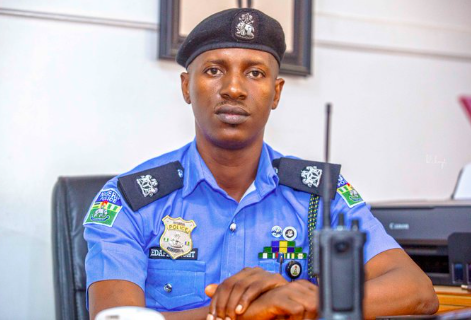The Director, Foreign Commonwealth and Development Office in the United Kingdom, Chris Beecroft has warned that the 2023 general elections in Nigeria may not hold as planned by the Independent National Electoral Commission (INEC) if the current spate of violence and insecurity that have engulfed Nigeria continues unchecked.
Recall that there have been rumours making the rounds that the current All Progressive Congress (APC) party, which produced the incumbent administration led by President Muhammadu Buhari may be planning to make the elections impossible and explore the possibility of extending the tenure of Buhari leveraging the 9th National Assembly, which most Nigerians said has failed them
Beecroft made the prediction that elections may not hold in 2023 yesterday during the launch of the Nigeria Governors’ Forum Peace and Inclusive Security Initiative (PISI) in Abuja. Beecroft identified active insurgency in the Northeast; farmers-herders conflicts, which are extending across the country, resource conflicts in the Niger Delta, the tension in the Southeast and banditry in the Northwest as some of the major challenges.
The UK government official however said a solution is definitely possible but requires all stakeholders to work together. He noted that while the military and the police need to be strengthened, the solution to Nigeria’s security challenge does not lie in that alone but in reconciliation, mediation, arbitration, and access to justice as well.
He said: “We are at a critical juncture in Nigeria’s journey, and now is an important moment for new thinking and action to build a more peaceful future for all Nigerians. The Foreign, Common-wealth and Development Office values our relationship with the Nigeria Governors Forum (NGF), and have supported the NGF through our programmess, including SPARC, PERL and most recently the Technical Assistance provided in framing the Peace and Inclusive Security initiative, PISI.
“Nigeria faces significant peace and security challenges. There is an active insurgency in the Northeast; farmer-herder conflicts are extending across the country; resource conflicts in the Delta; tension in the Southeast; and banditry in the Northwest. The rise in conflict risks destabilizing Nigeria’s democracy in the run-up to the 2023 elections.
“Conflict destroys lives, destroys livelihoods, destroys hope and ambition for the future. Conflict represents an existential threat to Nigeria’s unity and its development. The police and army are in urgent need of reform-but the solution to Nigeria’s instability does not lie in simply strengthening the police and army-but rather in building an effective social contract, building federal, state, local and community level infrastructure to manage conflict; and in giving young people jobs and opportunities so they have a stake in a prosperous and peaceful Nigeria.
‘’Injustice and impunity, weak justice institutions, the proliferation of small arms and weapons, the weaponization of social media, are all drivers of conflict and instability. But with the right commitment, dedication, and support, there are solutions. The UK Foreign Commonwealth and Development Office (FCDO), recognizes the important role NGF plays in setting the peace and security agenda, building state-level and community level structures and institutions to reduce violence and respond to conflict and insecurity across Nigeria.
“The FCDO is keen to continue its collaboration with and support for the government of Nigeria in its efforts to deal with the mounting insecurity. The UK is pleased to have been able to support this initiative and is committed to continuing working with the Nigeria Governors Forum, NGF, in advancing its peace and security agenda.
“The UK is engaged in supporting Nigeria to reduce violent conflict in a number of areas; we promote a regional response in the Northeast and Lake Chad Basin through our contribution to the Regional Stabilisation Facility, RSF, and delivery of programs on peacebuilding, humanitarian assistance, protection of civilians, human development, good governance, and accountability. All our programming, whether focused on health, education, economic growth, or governance, works to reduce the risk of violent conflict and support peace-building infrastructure.”





